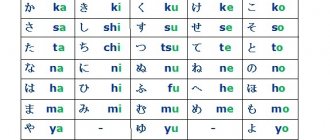So, the eight-hour working day came to an end. The most important work for today is done, and everything else can wait until the morning. This is what almost every employee thinks when leaving the office in the evening. But not millions of Japanese corporate employees, for whom leaving work to get home in time for dinner can lead to serious accusations of lack of loyalty to their company.
According to 2021 data, almost a quarter of Japanese employers allow their employees to overwork 80 hours per month. Moreover, these overtime hours are not paid, because workers do this of their own free will. In addition to this, the Japanese do not take the rest time they are entitled to by law, and if they take their entire legal paid leave, they feel guilty.
Start of the working day
Everyday life for Japanese residents begins with a trip. They rush to their place of work, usually using public transport. Most residents of this state refuse to use a car. They do this in order to save money. After all, maintaining a personal car will cost them about 10 thousand dollars. And this is only in one month! And is it worth using a personal car in a country that has the best public transport system on our planet?
However, in large cities, the Japanese pay for such savings with tedious commutes to work in cars that are 200% full relative to their design capacity. Nevertheless, such a morning ritual does not at all cause irritation among the indigenous inhabitants of the country, which they would take out on a neighbor.
The pandemic has changed the lifestyle of many Japanese
The Japanese authorities are trying to overcome stagnation in the country's economy, but the instruments of monetary and fiscal policy have already been exhausted.
Every day, millions of Japanese go to work, where they often stay late
Therefore, the authorities decided to rely on an alternative strategy - to try to change the lifestyle and work style of millions of citizens, explains Martin Schulz, an analyst at the Fujitsu Research Institute in Tokyo.
The coronavirus pandemic has already forced Japanese corporations to significantly change the way they do business - allowing employees to work remotely, introducing flexible work hours and many other innovations. “The government is extremely interested in ensuring that the changes in Japanese companies continue (even after the pandemic - Ed.),” notes Schultz.
A little history
The beginning of the increase in the average working day in Japan was facilitated by the rather low wages that the country's population received in the 1970s. Employees did everything to increase their earnings. That is why they sought to get extra money for overtime hours. This trend continued into the 1980s. And this despite the fact that a period came when Japan entered the list of the most highly developed economic countries, taking second place there. Residents of the country did not change the established tradition in the late 1990s. At this time, the working hours in Japan were long due to the crisis. In order to successfully overcome it, companies began to carry out internal reforms, rebuilding their organizational systems. At the same time, workers stayed late at work, trying not to get laid off. At the same time, companies began to hire temporary employees working without any guarantees or bonuses. Such a step made the existence of people on the staff even more unbearable.
Today, no one is embarrassed by a working day of 12 hours or more. As a rule, no one forces people to stay late in the evenings, but they believe that they are obliged to do so.
Are companies ready for the transition to a four-day work week?
However, the question of whether the government's plans will be implemented remains open.
During the pandemic, many Japanese companies switched to remote work
There are concerns that company leaders will be reluctant to abandon the traditional and conservative approaches to business that have served them so well for decades - even despite clear evidence that these methods are no longer as effective as before.
Employees, in turn, find the idea of shortening the working week attractive, but they fear that their salaries will be cut or they will be accused of not taking a responsible enough approach to work.
"Death by overwork"
The term "karoshi" means "sudden death from fatigue at work." "Karoshi" in Japan may be officially recorded as the cause of death.
An employee of the largest Japanese advertising holding company Dentsu suddenly died at work in 2015. The cause of death was then recognized as depression due to work overload. The incident drew widespread attention and public condemnation of Japan's habit of endless overtime.
Dentsu was fined for gross violations of labor laws, as facts of 100-hour monthly overtime were revealed. Dentsu later changed its approach to the working hours of its staff. For example, lights were turned off in offices after 10 p.m. to prevent employees from staying late.
Rating of professions
What specialists does the labor market in the Land of the Rising Sun need today? The following can find work in Japan without much effort:
- IT specialists. It is quite easy to explain the demand for such professions in a country that is a leader in the development of electronic technologies. However, an immigrant should prepare in advance for great competition. The fact is that Japan has many of its own professionals. The most popular specialties in this category are project managers and developers.
- Designers and architects. It is enough for good specialists from this field to get a job in Japanese companies. Moreover, employers are happy to attract immigrant professionals for cooperation. It is worth noting that in this regard, this is one of the few categories of specialists that deserve such a favorable attitude.
- Trade professionals. The most popular specialty in this category is sales managers. Japanese companies and sales representatives, freight forwarders and other workers in this field are invited. However, it is worth keeping in mind that to fill a vacancy you will need not only work experience in your specialty, but also excellent command of the Japanese language.
- Management personnel. Such employees form the backbone of Japanese business. The fact is that obtaining evolutionary results of economic development is impossible without proper planning of workers’ time and effort. In this regard, Japanese employers highly value recruiting, planning and management specialists. However, it is worth keeping in mind that this area is still easier for the indigenous residents of the country to navigate. But at the same time, foreign experience in implementing modern management systems may also be of interest to the employer.
- Marketing and PR specialists. Advertising is the engine of progress. The Japanese do not neglect this rule either. In addition to employees managing projects, managers working in this area are in demand in the country. However, only a person who, in addition to experience, is fluent in Japanese will be able to work in the advertising field.
- Electronics engineers. For Japanese employers, specialists capable of working in the production of household appliances, road vehicles, shipbuilding and instrument making are of particular value.
- Production personnel. Many large Japanese companies operating in the food and pharmaceutical industries, machine tools and mechanical engineering need such specialists. So far, in this country, complete automation of production is a prospect for the future. That is why immigrants will always be able to find work for themselves in some factory. Here, as a rule, technicians and operators are required for automated production lines. However, despite the fact that specialists in this category can quite successfully find employment in the country, it is necessary to clarify the requirements that the employer places on candidates. They are often required to have a technical education diploma.
- Consultants and teachers. These specialists are also in demand in the state. Here you can even get a job as a Russian language teacher. But lately there have been quite a lot of people applying for such a vacancy, so you have to wait for a suitable place for years. English teachers can get a job in Japan without any problems. However, if their place of work is educational institutions, then the specialist will be required to have a teaching license.
- Accountants and financiers. No organization can do without these workers. This is why they are also included in the category of the most in-demand professions in Japan. But knowledge of the language is a prerequisite for people who decide to apply for such a vacancy.
- Pharmacists and medical professionals. This category of specialists in Japan is considered one of the most privileged. Most clinics in the country are private. Thanks to this, the salary in Japan for a medical worker is approaching 760 thousand yen per month. Converted to dollars, this amount will be 6,400. However, it is almost impossible for an immigrant to get a job as a doctor in this country. The fact is that diplomas from other countries confirming receipt of this profession are not valued in Japan. To obtain permission to work as a doctor, you will need to graduate from a medical school directly in this country.
Work mentality
Every resident of Japan certainly follows the traditions that have developed in the country over many centuries. If we consider the attitude of the country's indigenous population to work, it can be noted that it has certain qualities. Among them are politeness and loyalty, personal responsibility, as well as the ability to operate effectively within a certain work team.
The main goal of the Japanese is to benefit the company, while working as a kind of cog in one coherent large mechanism. Individuality is not welcomed in this country. Those loners who are guided by the principle “my house is on the edge” have no chance of success. Highly educated, but at the same time ambitious people are less valuable for management than those who, although not as educated, are patient and open to compromise. Why does this happen? Yes, simply because the Japanese do not believe that money can be given to people in simple ways. They will not respect someone who does not work hard.
By the way, many Europeans complain that their lives are practically spent at work. But is it? How long are the working hours in Japan? This should be clarified in advance by anyone who has decided to take one of the vacancies in this country.











